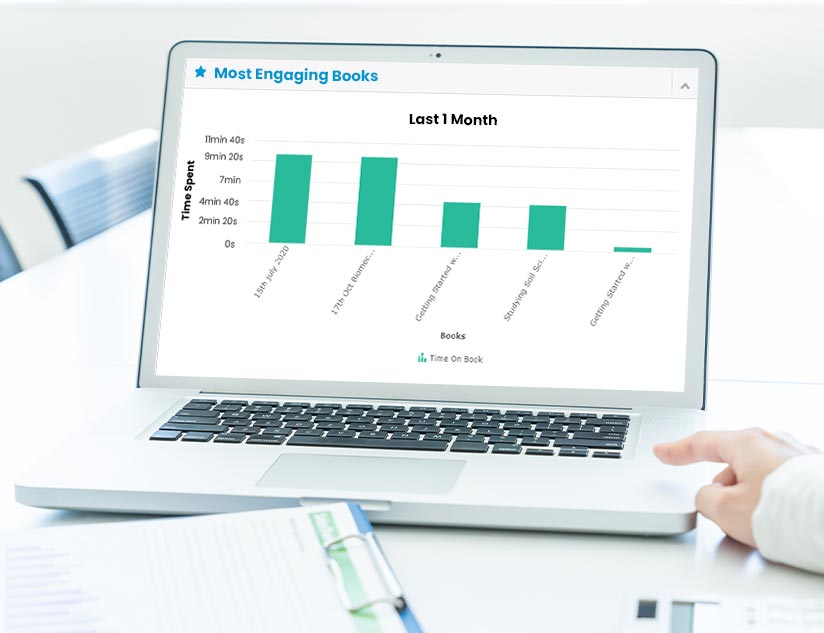Big Data refers to a large volume of structured and unstructured data that can be analyzed by organizations to formulate strategies and other key decisions. With education increasingly taking a digital route, it’s only natural that educators and publishers are soon going to be swimming in swathes of student data, which will have important implications for the learning industry.
Big data in education is poised to transform learning analytics, thereby allowing educators to offer personalized experiences. Courses can then be customized according to individual learners’ progress and predictions can be made based on patterns to enhance the learning experience. MagicBoxTM uses a Big Data paradigm called Log Everything, which captures all student activity, thus generating a lot of learning data.
MagicBoxTM is xAPI compliant; the experience API (xAPI) is a learning technology specification for collecting a breadth of learner experiences data. MagicBoxTM uses xAPI to store student data in an LRS (Learning Record Store) and captures every event the student experiences.
Big Data helps deliver personalized learning through the following:
- Insight on the learner’s needs: Since Big Data strongly relies on patterns, it can effectively chalk out the needs of a learner. Analysing learner data can provide rich insights into where students need help, allowing educators to identify learner behavior pattern like never before. It is also useful in uncovering patterns, leading to a new way of learning, engaging learner feedback, analyse learner needs, and develop a next generation of product, service or business model. MagicBoxTM not only churns out large amounts of data based on the learner’s behavioral patterns but also uses this data to customize learning. At the same time, it can make predictions based on data analytics for educators to proactively cater to student problems. Owing to this, educators can resolve weaknesses and build on the strengths of the student;
- Optimizing learner experience lifecycle: Big Data shows the real-time cause-&-effect of an educator’s actions and a learner’s responses, allowing schools to monitor learner behaviors and resolve their queries at a quicker pace to differentiate from their competition. This further helps in making ways to optimize learner experience lifecycle based on personalisation, preferences, targeted interactions and achieving a 360-degree view of learners progress. This ultimately increases student’s loyalty by following the 3 “I”s: Insight, Interaction, and Improvement;
- Insightful decision-making using learner‐centered pedagogy: Educators can explore the power of Big Data to drive business decisions that enhance efficiency and create transparency in their activities. With the usage of Big Data analytics, the quality of decision making also improves as organisations are required to adopt new and effective methods to extract the most meaningful results from data that generate value;
The future of big data in education
Big Data will be a game-changer in the future of education. Analytics can be used to design new tools to revolutionize teaching; MagicBoxTM generates a lot of analytics for publishing companies, teachers, and school administrators. Instead of focusing on a preset rigid curriculum, schools can shift to a data-driven approach. For instance, publishers can leverage usage analytics to determine which pages or topics in their books are not read at all and focus on improving those areas.
Finally, Big Data will also be useful for administrators and schools to build models for staffing requirements. Since online learning is a customized approach by itself, having the right educators come in at the right time will also be important.
K-12 education utilises a massive amount of data to evaluate students and help them grow. So far, MagicBoxTM has captured around a TeraByte of learning data. With the help of MagicBoxTM Analytics engine, teachers and parents can track student performance in the digital classroom. MagicBoxTM’s digital content allows educational institutions to generate meaningful data, empowering instructors, administrators, parents, and students to make better learning and teaching decisions.
Visit to learn more about MagicBoxTM K-12 learning solutions.













